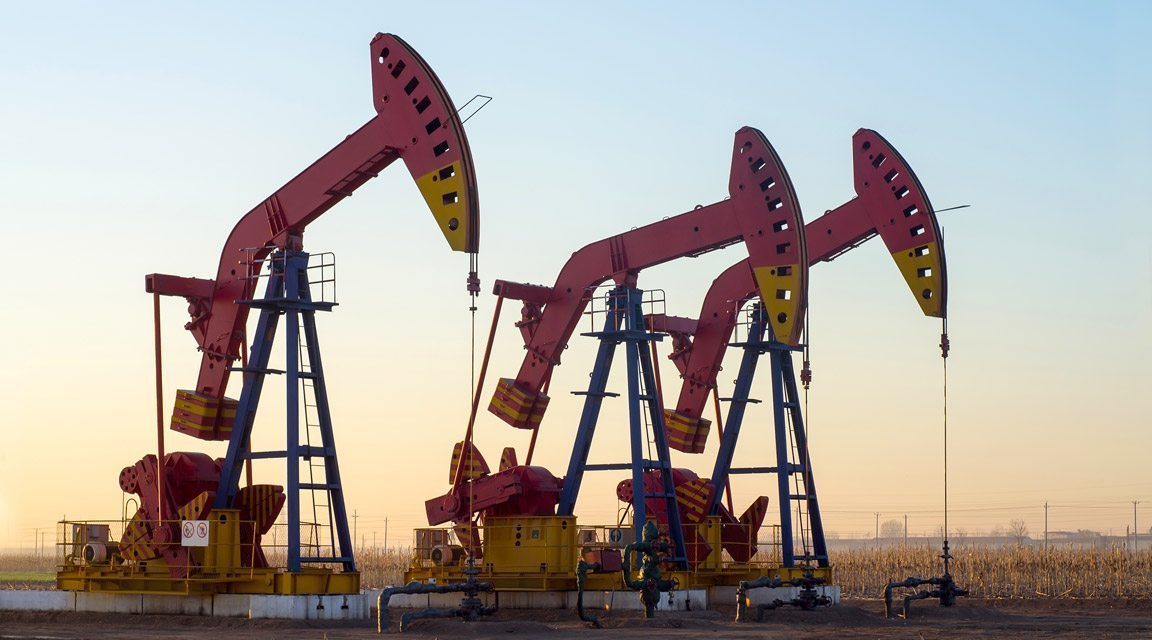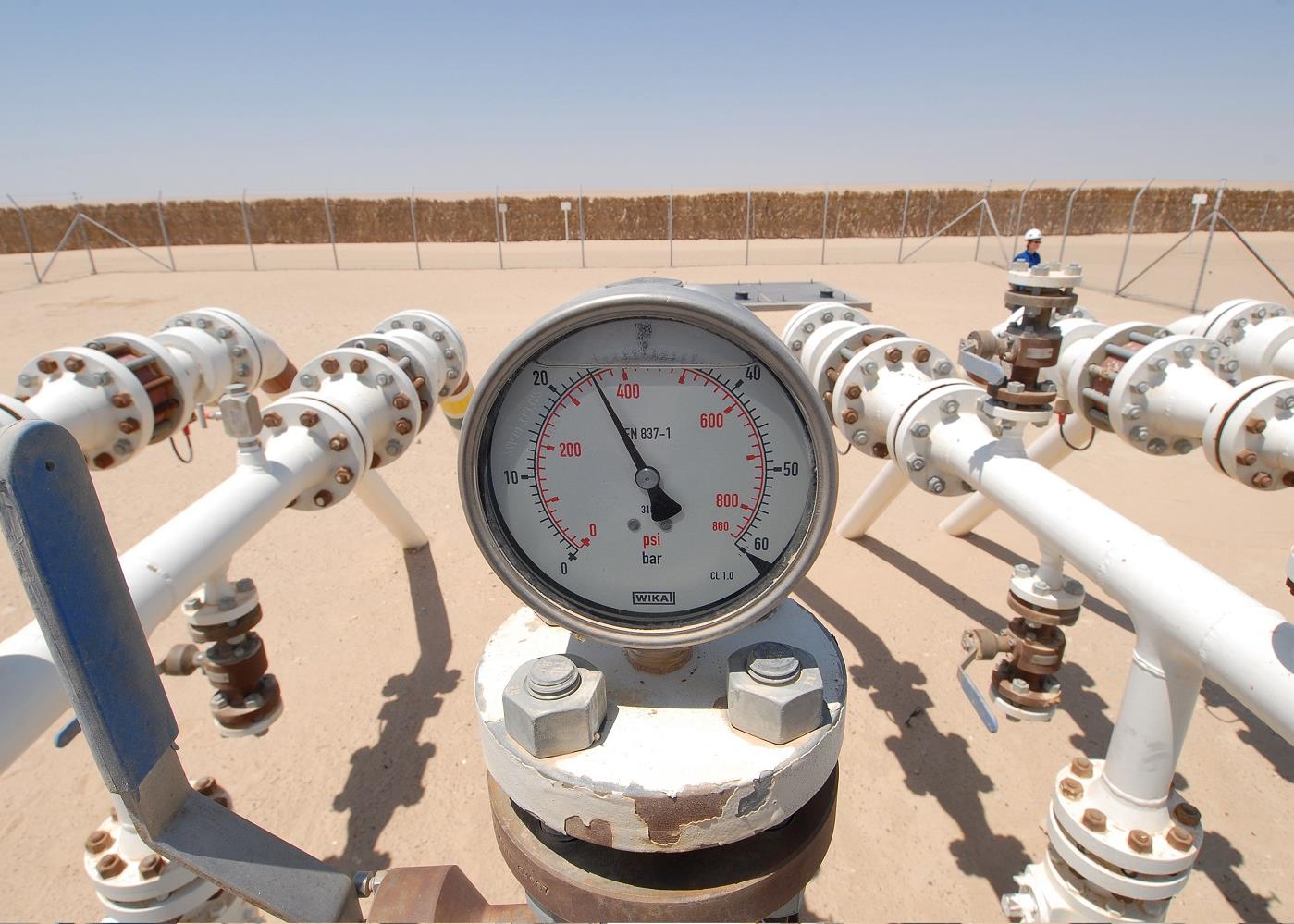

Budget problems and violence cast a shadow over future oil production in Iraq, but hope lies in foreign investment and exports
Over recent months, the outlook for large infrastructure projects in Iraq has become increasingly bleak. The country is descending ever deeper into a financial crisis, driven by extra spending on its ongoing war with the jihadist group Islamic State in Iraq and Syria (Isis) and lower revenues due to lower oil prices.
As the budget problems have worsened, the future of thousands of schemes across the country, worth billions of dollars, has become increasingly uncertain. This is a development that could have dramatic ramifications for the wider Middle East economy.
According to regional projects tracker MEED Projects, Iraq is the third-largest project market in the region after Saudi Arabia and the UAE, with $351bn-worth of schemes planned and under way. Of these schemes, $90bn-worth are in the oil, gas and power sectors, as the government works to modernise its energy sector and increase output.
Already, Iraqs projects market has shrunk by nearly a third due to the rise of Isis. Before the jihadist groups lightning advance in June 2014, when it seized control of almost a third of the country, the value of projects planned and under way stood at $519bn.
Second wave
This initial wave of project cancellations and delays was mainly due to security problems in the north and west of the country, where Isis presence made the completion of construction work impossible.
Now, Iraq is threatened by a second wave of project cancellations and delays due to the fact that Baghdad is fast running out of money.
The government in Baghdad relies on oil exports for more than 80 per cent of its revenues and has faced an enormous cut to its income as prices have dropped.
In October 2015, Iraq forecast that it would see a budget deficit worth 11.9 per cent of GDP in 2016, but this figure is now likely to be higher due to further declines in the price of crude.
Since June 2014, global oil prices have fallen by two-thirds with West Texas Intermediate crude slumping below $30 a barrel in January 2016.
Due to the severity of its financial crisis, Iraq has been forced to suspend work on several key strategic oil projects.
This is reducing the potential for future production in the country and is threatening to initiate a vicious cycle where lower revenues reduce output, which in turn reduces future revenues and limits investment in future production.
Strategic schemes
One key oil scheme that is currently being delayed is the $4bn West Qurna-2 field development project, which aims to ultimately boost the fields capacity to 650,000 barrels a day (b/d) through three development phases.
As of 14 January, the fields production stood at between 400,000 and 450,000 b/d, according to its operator, Russian oil company Lukoil.
Lukoil says it has yet to reach a final agreement with Baghdad on the 2016 budget for the scheme.
Another key oil project that is being delayed by budget problems in Baghdad is UK-based BPs $2.5bn scheme to develop the Rumaila oil field.
Like West Qurna-2, this scheme is yet to have its 2016 budget approved by Baghdad, according to sources close to BP.
On 2 November 2015, Zaid Elyaseri, BPs Iraq country manager, told MEED two of the projects packages, worth an estimated total of $1.37bn, were on hold pending the approval of the 2016 budget.
These include a $500m package to build four cluster pump stations and an $865m package to build three central processing facilities (CPFs), a gas processing plant and associated facilities.
While the projects to increase output at West Qurna-2 and Rumaila are both crucial to securing future income for the Iraqi government, Baghdad is virtually powerless to push them forward due to its lack of access to funds.
Chinese investment
While the overall outlook remains bleak, there is one recent development that has given hope to those with a stake in large infrastructure schemes in Iraq.
At the end of January, Baghdad announced it had signed a deal with state-owned China Petroleum Pipeline (CPP) and other foreign companies to secure investment in its $13bn Common Seawater Supply Project (CSSP).
CPP is a subsidiary of China National Petroleum Corporation (CNPC) and specialises in engineering and construction.
Under the deal, CPP will form a consortium with other investors led by Jordan-based private firm Mass Global.
The CSSP aims to replace existing use of fresh river water at Iraqs southern oil fields with seawater pumped through a network of pipelines. The scheme has seen significant delays since its conception in 2011.
Not only has the January deal kick-started the long-delayed CSSP, but it has also increased optimism that foreign investors may be willing to provide funds for other stalling projects.
According to one source, Iraq is offering companies deals that link investment in big infrastructure projects to opportunities to develop oil and gas fields.
If you invest in a big project then you will be given a favourable deal when it comes to developing oil and gas assets, says the source.
This is a very good idea for Iraq. Iraq needs so many schemes to be completed. Not just the CSSP, but also power projects to stop blackouts in the summer, when temperatures are high and electricity consumption peaks due to increased use of air-conditioning.
Security problems
While budget problems are disrupting oil and gas projects and threatening the future of Iraqs oil and gas production, in the short term production is threatened by security problems.
While 2015 has seen Baghdad and its allies make gains in the war with Isis in the north and the west, security has deteriorated in the south, which produces 75 per cent of the countrys oil exports.
Over the past 18 months, the area has seen a surge in crime, including murders, kidnapping, armed robberies, extortion and drug trafficking.
High-profile incidents included the shooting of an Italian oil worker in August 2015 in Basra, the murder of two engineers who were working on the Al-Zubair field in November, and the kidnapping of 26 Qatari hunters in the Muthanna province in December.
Tribal violence has also increased as state control has receded and tribes have filled the vacuum, playing a greater part in dealing out justice and resolving regional disputes.
Since the beginning of 2015, tribal conflicts have left dozens dead, including women and children. These deaths have sparked mass protests demanding better state-provided security and have prompted Iraqs top Shia cleric, Grand Ayatollah Ali al-Sistani, to call for an end to the clashes.
Clamping down
In early 2016, Baghdad moved to try and clamp down on criminal and tribal violence in the south, sending federal forces armed with heavy weapons, tanks and helicopters into Basra to try and confiscate weapons from militant groups in the region.
On 15 January, the government announced that more than 30 people had been detained in the operation, and that weapons, including rocket-propelled grenades and mortars, had been seized during raids on houses in the region.
However, the operations success was short-lived and what was originally intended as a show of force quickly turned into an embarrassing demonstration of the central governments declining influence in the south.
According to security sources, most of the additional forces that were sent into Basra were withdrawn after just over a week, following reports of disagreements with powerful Shia militia members over weapon confiscations.
Increasing unrest
Iraqi officials are concerned that failure to provide adequate power and water infrastructure in the south could fuel public anger in 2016 and ramp up risk for oil companies operating around Basra.
Every summer there is unrest in the region due to power cuts, high temperatures without air-conditioning, pollution levels and inadequate fresh water supplies, says Luay al-Khatteeb, founder and director of the Iraq Energy Institute and a senior adviser to the federal parliament of Iraqs committee for energy policy and economic reform.
This year the unrest is likely to be worse than ever before. Nothing has been done to resolve any of the old problems and new problems are being created due to budget problems and mismanagement in Baghdad.
Security failure
So far, oil production in Basra has not been affected by the higher levels of criminality and tribal violence.
If oil operations continue to operate as normal and are not disrupted by worsening security, Iraq should see oil exports increase in 2016 as several strategic projects are completed.
One of the key schemes that is expected to lift production when it is completed later this year is the addition of a fifth mooring buoy at Basra port, which could potentially increase the capacity for exports by 800,000 b/d.
Success story
Over the past three years, Iraqi oil exports have shown incredible resilience, hitting new highs despite the rise of Isis.
In January, the country exported an average of 3.88 million b/d, including exports from the Kurdish region in the north.
This is close to its highest level in three decades, and is 660,000 b/d more than the country was exporting before Isis advance across the country in 2014.
Iraq has the potential to push exports above the 4 million-b/d mark in 2016, but achieving this milestone will depend on several factors.
Production could easily be reduced if security problems increase in the south over 2016. Equally output could be reduced if oil producers group Opec decides to reintroduce quotas and orders Iraq to lower its output.
You might also like...

Algeria signs oil deal with Swedish company
19 April 2024

Masdar and Etihad plan pumped hydro project
19 April 2024

Ewec signs Ajban solar PV contract
19 April 2024

Contractor orders compressors for onshore project
18 April 2024
A MEED Subscription...
Subscribe or upgrade your current MEED.com package to support your strategic planning with the MENA region’s best source of business information. Proceed to our online shop below to find out more about the features in each package.




